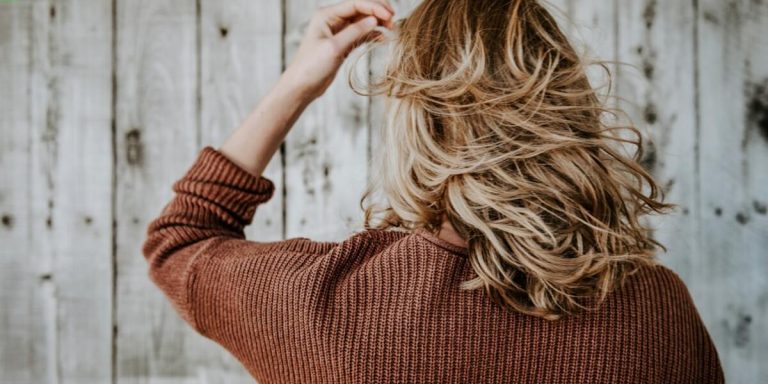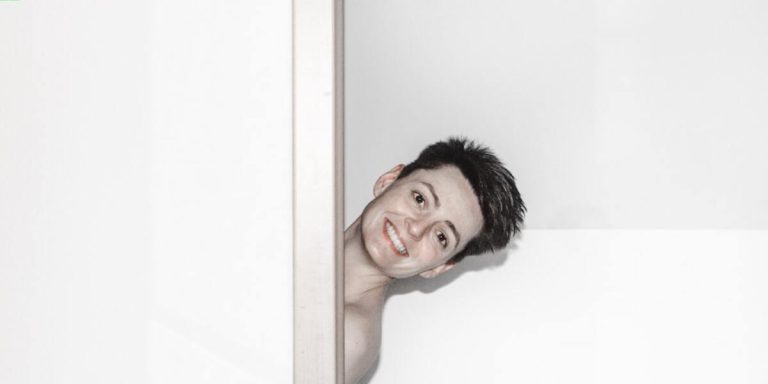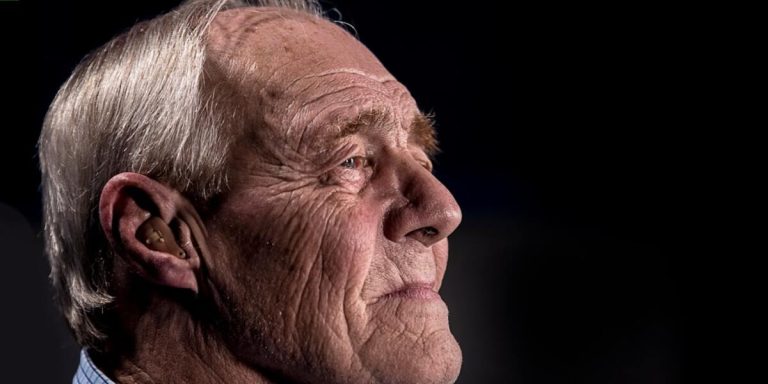Does Lice Cause Hair Loss? Exploring the Connection and Facts
Discovering lice in your hair can be a nightmarish experience, leading to immediate panic and embarrassment. One question that often arises is “Does lice cause hair loss?” While most people are aware of the annoying itching these pests bring, they’re less certain about whether these small insects can lead to more long-term issues such as hair thinning or baldness.
Hair health is essential not just for appearance’s sake but also for overall well-being. Getting rid of lice tends to take center stage when an infestation occurs; however, it’s equally important to explore if there could be possible connections between this common pest problem and noticeable reductions in hair volume. To give you clarity on any potential risks involved with having head-lice concerning your scalp health, let’s delve deeper into examining the facts associated with it.
Did you know?
Contrary to popular belief, head lice do not directly cause hair loss. However, constant scratching induced by a lice infestation can damage the scalp and hair follicles, potentially leading to temporary thinning or hair loss.
Understanding the Connection Between Lice Infestation and Hair Loss
Unveiling the complexities of hair loss can be a perplexing endeavor, especially when factoring in unlikely culprits such as lice. Although lice are typically associated with causing discomfort and itchiness, many individuals wonder: does lice cause hair loss? To understand the connection between these pestering parasites and potential hair thinning or loss, we need to delve into their nature.
On surface level scrutiny, you might assume that an increase in scratching due to head-lice could lead directly to shedding strands. However on scientific groundings there is no direct correlation between having lice infestation and experiencing increased levels of baldness. This doesn’t mean though one shouldn’t worry about itchy invaders; after all they do pose other health risks which indirectly may impact your scalp’s wellbeing.
Indirectly speaking if not treated promptly over time persistent itching caused by a head-lice invasion leads people often ending up with intense scratching sessions damaging both their scalps impairing natural follicle growth – this indeed triggers temporary yet noticeable reduction in volume but luckily steps can be taken for normalization once again including appropriate treatment timely management positive lifestyle changes leading towards opulent tresses despite initial setbacks.
Analyzing the Direct Effects: Can Lice Lead to Hair Thinning?
Despite being a common menace to many, the question “does lice cause hair loss?” often arises. In 2023, it’s crucial to be informed about every facet of our health and wellbeing.
Lice infestation is an uncomfortable problem affecting millions globally. Sure enough, they can drive anybody nuts with their incessant itchiness! But does this annoying occurrence also lead directly or indirectly to hair thinning?
Surprisingly, the answer isn’t as straightforward as one might expect.
The existence of head lice itself doesn’t directly result in hair falling out or thinning. However, there’s an indirect connection that may link these creatures with potential bald patches downline.
Firstly let’s clarify: Lice are tiny insects feeding on human blood from your scalp – yuck right? Yet what we see most commonly is individuals aggressively scratching due to the itching caused by the bites and movements of lice on their scalps. This vigorous scratching brings us closer to understanding how exactly head-lice could contribute towards possible hair fall issues because excessive scratchings disrupts follicular functioning leading ultimately – you guessed it—hair loss!
Debunking Myths: Separating Fact from Fiction in Lice-Induced Alopecia
Lice infestation is a common concern across all demographics, yet it often carries with it numerous misconceptions. Most notably, people frequently question if lice have the potential to cause hair loss (Alopecia). To shed some light on this matter and give you peace of mind, let’s debunk some myths.
Firstly, just because you’ve caught lice doesn’t mean your hair will suddenly start thinning or falling out. It’s crucial to understand that these tiny parasites feed solely on human blood— they do not consume or damage our tresses. Hence, there isn’t any direct correlation between “lice causing hair loss” and their presence in your mane.
However – don’t breathe freely yet! While lice are innocent when questioned about consuming your treasured locks directly; severe itching induced by them might make things worse for you. Scratching too aggressively can lead to scalp wounds which may subsequently end up in infections resulting in temporary Alopecia!
Moreover – stress plays an important part here as well! Chronic worry stemming from having pests crawling through one’s strands may trigger Telogen Effluvium (TE) – a type of non-permanent but certainly distressing hair shedding condition.
Then comes another factor: treatment chemicals used against lice could potentially harm more than help sometimes especially if used overzealously following improper guidelines – leading again back at square one of deforestation atop heads!
Exploring Common Triggers for Hair Loss Beyond Parasitic Causes
Hair loss can be a deeply troubling experience for many, leading to self-esteem issues and overall distress. While there are numerous triggers for hair loss ranging from hormonal changes to dietary deficiencies, it may surprise you that the presence of parasites such as lice is not commonly associated with this condition despite public misconception.
Thus when examining common causes contributing towards significant hair loss beyond parasitic insurgences like these we often need to look at factors within your lifestyle or genetic make up itself. Hormonal fluctuations caused by aging or conditions such as Polycystic Ovary Syndrome (PCOS) have been linked directly with patterned baldness impacting both men and women alike globally since time immemorial.
It’s also important here not overlook stress-induced telogen effluvium—a temporary form of substantial shedding induced post extreme emotional physical duress—that although non-permanent demands timely intervention prevent scarring long term consequences if left unchecked too long.
Hormonal Imbalances and Their Impact on Hair Health
To start with, an overview on hormones is essential here: Hormones play vital roles in our body’s functioning and that includes the health of your hair too! For instance, particular types include thyroid hormones which regulate metabolism; sex hormones like estrogen or testosterone influence traits including hair growth.
Speaking about Thyroid-related issues first- Hyperthyroidism (an overactive thyroid) can lead to thinning hair while hypothyroidism (underactive thyroid) might contribute towards dry and brittle locks prone to breakage. It isn’t restricted by gender either; both men and women could experience these conditions causing different patterns in their respective cases.
For female individuals specifically – Fluctuations tied specifically with life events known universally among women such as pregnancy or menopause plays critically into this phenomenon often manifesting considerable shifts in their crowning glory!
The Role of Nutritional Deficiencies in Promoting Baldness
The role that nutritional deficiencies play in promoting hair loss has been highly under-discussed within the conversation surrounding baldness. When considering causes such as parasites like lice, we often forget to explore other essential aspects tied closely with our overall health – nutrition.
Having a poor diet can significantly contribute to hair loss. It’s important then first to understand what nutrients are vital for maintaining healthy hair growth and how lacking these may aid its falling out.
Iron is one of the major players in this game. Not having enough iron – an issue commonly seen among vegetarian and vegan individuals or those with eating disorders – could potentially lead a person down the path towards alopecia (hair loss). Iron deficiency restricts blood flow to our scalp, depriving it of oxygen and necessary nutrients which results in thinning hair over time.
Zinc too plays an equally significant role when talking about nutrition-related reasons behind unnecessary shedding of strands from your mane; zinc deficiency essentially leads dead cells not repairing thus resulting in fragile follicles prone excessive breakage—a prime trigger factor for losing more locks than usual every day!
Preventative Measures and Treatments Against Hair Loss Due to Pests
Hair loss can be a distressing event and the reasons behind it are many, ranging from health conditions to stress. However, one of the lesser-known but increasingly common causes is linked to pests like lice. Contrary to popular belief, lice infestations aren’t just an inconsequential irritation – they have substantial consequences for hair health.
Although lice themselves do not directly cause hair loss, repetitive scratching induced by their infestation can lead to scalp damage and subsequent thinning of hair or even bald patches in severe cases. The continuous itching instigated by these tiny parasites results in wounds on the scalp which may get infected if left untreated causing more harm than just discomfort.
- Maintaining good personal hygiene
- Conducting regular checks at home or in professional salons, especially if someone close has a lice problem.
If you’ve already fallen victim to these unwelcome guests, don’t lose hope! Numerous effective treatments exist:
- Over-the-counter medicated shampoos specially formulated to eliminate head lice and soothe itchiness.
Effective Strategies to Eradicate Head Lice Without Harming Scalp Health
Hair loss can occur for a variety of reasons, one of them being pest invasion. The most common scalp-invading pests are head lice. These tiny parasites not only cause intense itching but prolonged infestation could also lead to hair thinning and eventually hair loss.
Therefore, the question may arise – does lice cause hair loss? Yes, they potentially do if left untreated over an extended period.
Firstly, let’s understand how this happens. When head lice infest your scalp, their bites result in persistent itchiness that provokes constant scratching from affected individuals. This repeated trauma leads to damage at both follicular level as well as overall scalp health causing weak strands prone to falling out prematurely.
For starters conventional treatments such as medicated shampoos can be utilized under professional guidance so that usage is limited according precise need thereby reducing chances damaging healthy tissues while removing nuisances effectively with minimum possible irritation.
To combat the ravages of time effectively, consider these approaches: eliminate pests and restore original vigor and vitality to our hair.
1) Regular combing specially designed nit combs help physically remove adult immature stages along shedding nits before they hatch into new ones – prevention better than cure indeed!
Restorative Care Post-Lice Removal to Stimulate Regrowth
In the world of hair care, one burning question that often comes up is “does lice cause hair loss?” The answer may surprise you. It’s not directly the presence of these pests that causes your precious locks to fall out, but rather the aggressive scratching and combing involved in their removal which can lead to damage.
Restorative care post-lice removal becomes essential for stimulating regrowth and ensuring healthy mane. This process doesn’t have to be complicated or time-consuming; it simply requires consistent application of a few key methods along with nurturing treatments tailored specifically towards replenishing strength and vitality into worn-out strands.
Conclusion
So, does lice cause hair loss? The verdict is – not directly. However, the incessant scratching due to an infestation could indeed lead you down that path of thinning tresses.
While it’s key to get rid of these pesky parasites at once with appropriate treatment, remembering not to scratch too hard or frequently can save your scalp more trouble.
Remember this pointer and others next time when dealing with a head full of lice – prevention always trumps cure! We invite you respectfully around our website should have any questions about other possible causes for losing hair; we provide well-researched content on various ‘Hair Loss Causes’. It’s never just one aspect but a combination that influences such issues.
Knowledge empowers action- So why wait? Start browsing now!







